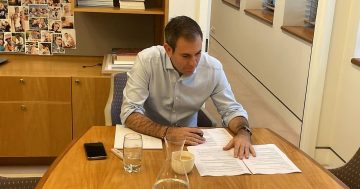Jack Derwin* says according to new Australian Prudential Regulation Authority (APRA) figures, Australiana have made 3.6 million requests to withdraw super early, with critics saying the scheme should never have been implemented.
 We’re just past halfway on the government’s superannuation early access scheme, and Australians have tried to withdraw $28 billion in total.
We’re just past halfway on the government’s superannuation early access scheme, and Australians have tried to withdraw $28 billion in total.
Having almost eclipsed Treasury’s initial estimates, with more than two months still left to run, it has been lambasted as a “free for all”.
From its poor administration through to risking growing inequality in the midst of a crisis, some critics say the scheme should never have been implemented.
The demand amongst Australians for emergency access to their superannuation threatens to far outstrip initial estimates with three months to run of the early access scheme.
On Monday, the latest APRA figures showed that at just past the scheme’s halfway mark, Australians had tried to withdraw $28 billion of their retirement savings.
They reveal some 800,000 Australians applied to withdraw a second lot of up to $10,000 this financial year.
Combined with initial applications, 3.6 million withdrawals had been submitted so far.
An APRA spokesperson confirmed it was unknown how many Australians had withdrawn their super.
That’s because the regulator only counts the number of accounts subject to withdrawal requests, rather than counting the number of unique applicants.
As many people maintain more than one super account, this figure can be misleading.
With more than two months left to run, the scheme looks destined to far surpass the $29 billion the federal government anticipated would flow out when it gave the go ahead to crack open the country’s $3 trillion retirement nest egg.
It should surprise no one, financial adviser Justin Bridger told Business Insider Australia, with applicants facing few check and balances in the first place.
“This is what happens you open the floodgates like this without having a proper gatekeeper to administer it,” the director of financial planning firm AdvicePlan said.
“It’s become a free-for-all.”
Exacerbating future inequality
Cobbled together quickly as the coronavirus crisis began, it’s a scheme that will come back to haunt applicants and future governments alike, Alexs Vynokur, founder of Australian fund manager Betashares, warns.
“The government has presented this policy as if they’re helping people out with it, but they’re not the ones funding it. Instead, it’s the people who do desperately need some help who are paying for it and unfortunately, it’s going to hurt them a whole lot more in years to come,” Vynokur told Business Insider Australia.
“It’s just going to widen the gap between the haves and have-nots.”
“Superannuation is meant to help people save for retirement, but this shortsighted scheme undermines that, and it simply means there are going to be more people relying on the public safety net when they hit retirement.”
Instead of using super “as an ATM”, he says the government should have stepped in and supported those people directly, with the cost of doing so far smaller than having to support them later in retirement.
Monday’s figures, however, show the horse has well and truly bolted, with at least half a million Australians having left themselves without a cent.
The scheme is now set to penalise the same people it approved.
With many ineligible to have withdrawn their super from the start, the scheme has also presented the ATO with another big challenge in sorting out honest mistakes from deliberate rorters.
“The big problem with allowing people to self-assess is that it works on the assumption the applicant is well-informed, and sadly, that’s not often the case. Many thought the ATO would assess them and they’re just finding out now they’ve broken the rules,” Bridger said.
With the ATO being tipped to ‘easily’ track those people down and whack them with tax bills and fines, some will face a serious headache this tax time.
“Financial literacy isn’t very good among the vast majority of Australians and this scheme has really exposed that,” Vynokur said.
While neither he nor Bridger suggests that deliberate rorting shouldn’t be penalised, the ability of the ATO to determine intent is unclear.
“Those penalties if applied are pretty harsh for a policy that has been put together very quickly, without enough time or thought being put into its administration,” Vynokur said.
“If well-intentioned people are penalised as a result, it will be tragic.”
*Jack Derwin is a Senior Journalist at BusinessInsider. He can be contacted on Twitter at @jack_derwin.
This article first appeared at businessinsider.com.au











